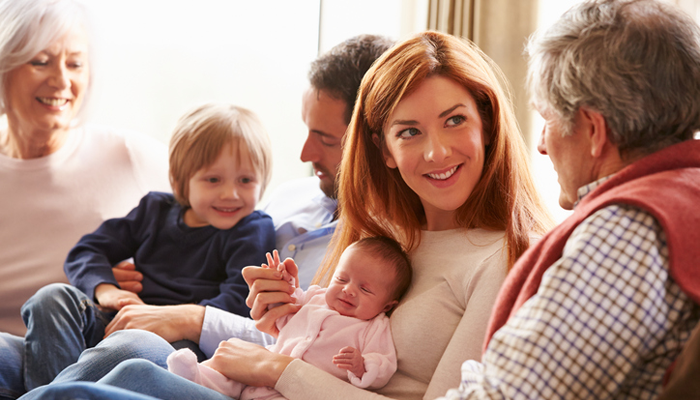Q: “Our parents don’t understand why we want the birth family to remain in our lives. How can we help them get on board?”
A: It’s not surprising that your family members are anxious about the idea of an open adoption. After all, your parents are from a different generation, when closed adoption and secrecy were the norm. In the past, birth mothers were typically viewed negatively, for being pregnant out of wedlock, and for “giving away” or “abandoning” their children. As for the children, it wasn’t common for them to be told they were adopted, let alone for them to have birth parents involved in their lives.
Your parents may also view the birth mother as a threat — someone who could change her mind and take away the baby, leaving you in pain. So some of their worries stem from a desire to “protect” you. They may have witnessed your struggles with infertility, and they don’t want you to experience any more disappointments.
In reality, a birth mother is much less likely to change her mind and reclaim a child if she has the peace of mind inherent in open adoption. In your case, the birth parents selected you, and, because you’ll have an ongoing relationship, they’ll know firsthand that their child will have a good life.
Begin by educating
To move past their stereotypes and fears, your parents will have to learn more about open adoption. You probably went through an educational process yourself, before making the decision to adopt. In my experience, it’s an evolutionary journey. The more you learn about open adoption — especially about its benefits to your child — the more comfortable you become with it. Your parents have not had this opportunity to evolve in their thinking.
First, think about what convinced you that an open adoption was right for you. Was there a particular book that helped dispel any myths you held? If so, lend it to your families. Did an informational session hosted by an adoption agency or support group help you make up your mind? Many adoptive parents have told me that their relatives benefited from attending birth mother panel discussions. Listening to these women talk about the love that went into their adoption decisions, as well as the importance of an open relationship, can open a doubter’s eyes.
The shift in thinking
As your family members learn more about your open adoption, they will see that your child’s birth mother is not a threat. Much of their current anxiety is rooted in a fear of the unknown. They imagine the birth mother as a mysterious figure, lurking in the shadows, ready to grab your kid and run. Assure them that this is much more likely to happen in a soap opera than in real life!
You can do a lot to help your parents move past such fears if you have already been matched with a birth mother. Share photographs, letters, and information, so that she becomes a real person to them. Even better would be for your relatives to meet her themselves.
One couple I know, Bob and Lauren, took a dramatic step — they invited the birth mother, Jane, to the shower for their new baby girl. Both sets of their parents were skeptical about open adoption, and reacted negatively to this news: “Are you sure that’s a good idea?!” However, as soon as they met Jane, their fears and negativity disappeared. They saw that Jane was a real person, and clearly not a threat.
By the party’s end, both sets of grandparents-to-be were offering to pass along furniture for Jane’s new apartment — they wanted to do something in return for the amazing gift she had given their family. Bob and Lauren were surprised by their parents’ sudden turnarounds. In my experience, however, such changes of heart are common, once you remove fears, stereotypes, and unknowns — and replace them with a loving reality.

